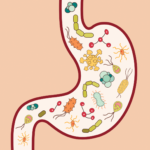Physical exercise reduces stress by heightening levels of a brainstem protein known as galanin, a new study conducted on rodents revealed.
Exercise has significant benefits for both physical and psychological health. In new research, published in the journal JNeurosci, exercise was shown to raise the brain’s resilience to stress by an increase of galanin, a brainstem protein implicated in stress-related mental disorders.
For the new study, a team of researchers examined how exercise affects stress relief in rodents, monitoring their behavior for a span of 24 hours following a stressful event.
In the study, the rodents who initiated physical activities over a span of a few weeks exhibited less behavior associated with anxiety compared to their counterpart.
Among the rodents who performed physical exercise, researchers noticed increased galanin levels in the locus coeruleus (LC) area of the brain.
“We show that chronic voluntary wheel running in mice increases stress resilience and increases galanin expression in the LC,” the findings state.
“Furthermore, we show that genetic overexpression of galanin in noradrenergic neurons causes resilience to a stressor and the anxiogenic effects of optogenetic LC activation. These findings support a role for chronically increased noradrenergic galanin in mediating resilience to stress.”


